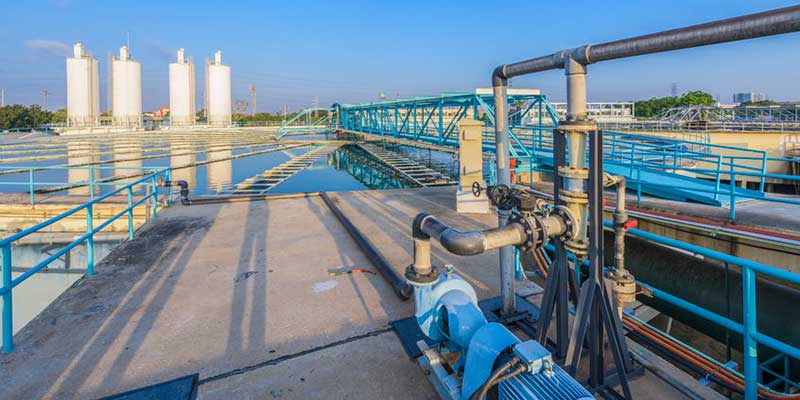
This post explores the challenges in implementing the broad domestic preference mandate in the Build America, Buy America (BABA) Act. This mandate has created challenges for entities undertaking infrastructure projects with federal funds, notably the transportation and water infrastructure sectors. The challenges include the absence of final guidance on the mandate's implementation, differing approaches taken by agencies in issuing waivers, and the lack of manufactured products and construction materials produced in the United States. The post also reviews recent revisions of the Buy American Act rules.
Implementation of the BABA Act's 'Buy America' Mandate: The BABA Act, included in the 2021 infrastructure law, requires all iron, steel, manufactured products, and construction materials used in infrastructure projects that receive federal funds to be produced in the US. (The requirement became effective in May 2022.) A federal agency may waive the requirement provided it posts the proposed waiver online for 15 days and allows for public comments. The administration’s Made in America website provides a link for agencies issuing such waivers (see, for example, the Environmental Protection Agency (EPA). While the White House issued initial guidance on the implementation of the mandate in April, it has yet to issue final guidance.
As discussed in an earlier post, the Department of Transportation in May issued a six-month waiver of the ‘Buy America’ requirement for construction materials. The basis for that waiver was the challenges posed by the BABA Act's application of the ‘Buy America’ requirement to construction materials for the first time.
Another sector facing problems in implementing the BABA Act mandate is the water sector. In a mid-September letter, the Association of Metropolitan Water Agencies (AMWA) and 18 other water infrastructure stakeholders from across the country asked EPA to waive the mandate for all EPA-funded water and wastewater infrastructure projects through 2024. In making their request, the organizations expressed concerns with the way the ‘Buy America’ mandate was being implemented. They cited delays in the federal government issuance of “clear and concise implementation guidance," particularly for manufactured products, as well as the inconsistent application of proposed waivers between federal agencies and within agencies administering water and wastewater infrastructure programs. They also emphasized that their sector relies on many products and technologies that are not made--and have never been made--in the US. In their view, it will take years for the creation or expansion of sufficient manufacturing capacity to meet the demands of the water sector as well as other infrastructure needs.
In addition to seeking publication of federal guidance on implementation of the BABA Act requirement, the water and waste treatment entities requested two types of waivers. One is an adjustment period waiver for 2023 and 2024. The second is national waivers for manufactured products never produced in the US or not produced in meaningful quantities, in order "to minimize the need for individual utilities to request project-by-project specific waivers for products known not to be produced” in the US.
Revisions of Buy American Act Rules: On October 25th, the Biden administration implemented revisions of the Federal Acquisition Regulation (FAR) that strengthened domestic preferences required by the Buy American Act. The revisions had been adopted in March with implementation delayed. One rule change increased the domestic content threshold for products to qualify as domestic. It provides that at least 60% of a product’s components must be U.S.-made (based on cost) for the product to be considered domestic under the Buy American Act. (This was an increase from the 55% threshold implemented by the Trump administration.) The threshold will rise to 65% for items delivered in calendar years 2024 through 2028 and 75% for items delivered starting in 2029. The revision includes a fallback provision that allows agencies, until 2030, to use the 55% threshold if they determine no end products or construction materials meet the new domestic content threshold or the cost of such products is unreasonable.
Another revision of the FAR added a framework for applying price preferences for critical products and products with critical components, which are higher than the existing preferences (20% when the lowest domestic offer is from a large business and 30% when such an offer is from a small business). The list of critical items and critical components, and their higher or enhanced price preferences, were not included in the revision. They will be established in a subsequent rulemaking, which was expected before the end of 2022. However, a proposed rule has not yet been issued. The deadline for the preparation of a draft proposed FAR rule was extended from July 20 to November 9, 2022.
Another delayed rulemaking procedure involves updating the list of domestically nonavailable articles listed in the FAR. Agencies are permitted to purchase items on the list from foreign sources. Since 2020 the FAR administrators have been engaged in preparing a response to a FAR requirement (FAR 25.104(b)) to publish the list of Domestically Nonavailable Articles in the Federal Register for public comment at least once every five years. The preparation of a draft proposed FAR rule, initially due in 2020, has been extended repeatedly, most recently, to November 9, 2022.
Jean Heilman Grier
October 27, 2022
Related Posts
"Buy America" in Infrastructure Act: Trade Agreements
US Transportation Department's Construction Materials Waiver
White House Guidance on "Buy America" for Infrastructure Projects

